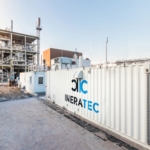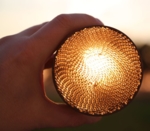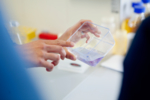-
Press release - 02/11/2023
The Sustainability Innovation Campus (ICN) initiated by the University of Freiburg and the Karlsruhe Institute of Technology (KIT), which will begin its work in January 2024, has announced a two-year funding programme for start-up projects. Scientists from the University of Freiburg, KIT and cooperating universities and research institutions are invited to submit their project outlines by 30 November 2023.
https://www.biooekonomie-bw.de/en/articles/pm/sustainability-innovation-campus
-
-
Press release - 30/08/2023
Rising sea levels due to climate change and artificial irrigation cause soil salinity to increase. This has a negative impact on agriculture, including viticulture. The plants die, yields decrease. Researchers of Karlsruhe Institute of Technology (KIT) have therefore studied a wild grapevine of higher salt tolerance. Their goal is to identify the genetic factors that make the grapevine resilient.
https://www.biooekonomie-bw.de/en/articles/pm/soil-salinity-wild-grapevine-defends-itself
-
-
-
-
-
Residual materials with potential - 16/03/2023
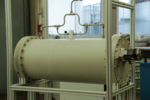
The objective of the PeePower™ BUGA 2023 collaborative research project is to produce green hydrogen and platform chemicals from wastewater. This fits in nicely with BUGA 2023’s (German National Garden Show) four major themes, namely, climate, energy, environment and food security.
https://www.biooekonomie-bw.de/en/articles/pm/peepower-energy-urine
-
Project FuTuReS - 12/12/2022
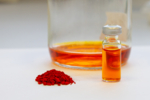
Algae are aquatic organisms that flourish in a huge variety of species. But that's not all: they are also small green mini-factories that can produce all kinds of valuable materials. All they need is water, light, CO2 and a few nutrients that can be recycled from biogas or sewage treatment plants. Researchers have now determined the optimal framework conditions and practicability of process methods for agricultural algae cultivation.
https://www.biooekonomie-bw.de/en/articles/news/microalgae-high-quality-products-domestic-agriculture
-
Press release - 02/11/2022
Whether in drinking water, food or even in the air: plastic is a global problem - and the full extent of this pollution may go beyond of what we know yet. Researchers at the Karlsruhe Institute of Technology (KIT), together with partners from the Netherlands and Australia, have reviewed conventional assumptions for the transport of plastic in rivers.
https://www.biooekonomie-bw.de/en/articles/pm/blind-spots-monitoring-plastic-waste
-
Press release - 06/10/2022
Basic chemicals, which are needed as raw materials for a wide range of products such as medicines and detergents, can currently only be produced with an enormously high input of energy and raw materials. In many cases, fossil fuels and raw materials are still used. The extraction of chemical substances alone requires high temperatures, expensive catalysts made of precious metals and, in some cases, environmentally harmful starting materials.
https://www.biooekonomie-bw.de/en/articles/pm/neue-elektrolyseverfahren-fuer-eine-nachhaltige-chemische-produktion
-
Press release - 20/05/2022
The construction industry consumes large amounts of energy resources and produces tons of waste. At the Solar Decathlon Europe 21/22 university competition, students and researchers from KIT are eager to demonstrate that the building sector is already compatible with a functioning circular economy. The task of the interdisciplinary “RoofKIT” team is to convert previously unused roofs of buildings into usable spaces.
https://www.biooekonomie-bw.de/en/articles/pm/roofkit-how-build-recycling-oriented-and-sustainable-way
-
Press release - 02/03/2022
The Ministry of the Environment, Climate Protection and the Energy Sector is funding the KoalAplan project, which extends the functional scope of a wastewater treatment plant. The project, based in the Stuttgart district of Büsnau, aims at recovering raw materials from wastewater and is therefore making a positive contribution to climate neutrality, as the products obtained replace fossil raw materials and energy-intensive processes.
https://www.biooekonomie-bw.de/en/articles/pm/biorefinery-project-koalaplan-extracting-raw-materials-wastewater
-
Press release - 02/02/2022
fischertechnik has set a new milestone with the Animal Friends construction kit, as the building blocks and packaging are largely made of renewable resources and the models depict playful animals in new colours. The company is thereby taking another major step towards sustainability. The bio-based building set recently won the Toy Award, one of the most prestigious awards in the industry.
https://www.biooekonomie-bw.de/en/articles/pm/animal-friends-aus-nachwachsenden-rohstoffen
-
Press release - 09/07/2021
Refuels are renewable fuels that can be produced in different ways. When they are mixed and processed such that they meet the existing fuel standards, they are suited for all types of combustion engines. This is the result of the latest vehicle and fleet tests within the project “reFuels – Rethinking Fuels” at Karlsruhe Institute of Technology (KIT). Compared to fully fossil fuels, refuel mixes allow for a CO2 reduction by 25% at least. Moreover,…
https://www.biooekonomie-bw.de/en/articles/pm/refuels-are-suited-wide-use
-
Press release - 15/06/2021
Microorganisms are the oldest, most abundant, and most diverse life forms on earth and offer enormous potential for biotechnological applications. To date, however, only a fraction of them could be isolated and cultivated. The “MicroMATRIX” research project, funded with € 1.5 million by the German Federal Ministry of Education and Research and led by Karlsruhe Institute of Technology (KIT), aims to shed more light on the microbial darkness.
https://www.biooekonomie-bw.de/en/articles/pm/biooekonomie-von-der-wg-ins-mikroben-eigenheim
-
-
Press release - 22/02/2021
Agrivoltaics enables the dual use of arable land: Photovoltaic modules, which are mounted on a structure, generate renewable electricity and underneath agricultural crops grow. The approach increases land efficiency and could mitigate conflicts over the use of arable land in the future. A new guideline provides up-to-date information on the technology, its potential and the current state of development.
https://www.biooekonomie-bw.de/en/articles/pm/Dual-Yield-on-Arable-Land-Guideline-for-Agrivoltaics-Published
-
-
-
-
-
Dossier - 23/09/2013
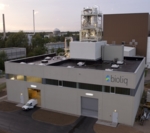
On the one hand, a bioeconomy relies on renewable resources to meet society’s need for food, energy and industrial products. On the other, it emphasises the role of biogenic material flows. The bioeconomy model is expected to reduce our dependency on fossil fuels in the long term. In order to implement the shift to a biobased economy on the regional level, the Baden-Württemberg government launched the Bioeconomy Research Strategy in summer 2013.
https://www.biooekonomie-bw.de/en/articles/dossiers/bioeconomy-a-new-model-for-industry-and-the-economy
Website address: https://www.biooekonomie-bw.de/en/search



